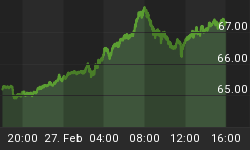Cash is cumbersome, dirty and increasingly too tangible for our digital desires. And while we’ve already given it up to a fair extent for the credit and debit card--it still means we have to wait in lines, and that’s so 1990s. In an effort to cut costs and avoid long lines in front of the cash register, a small-but-growing number of retailers have stopped accepting paper currency entirely. Over the past couple of years, some retail stores and restaurants in large cities have simply ceased cash operations.
But the problem is that while it may be safer and more convenient to pay without cash, banning the use of cash could be discriminating against low-income individuals without credit or bank accounts because of the fees and minimum balance requirements.
In fact, local and state governments are rather up in arms about the whole thing.
Earlier this month, the Philadelphia City Council passed a bill making it the first major city to ban cashless payments. New Jersey. Now New York City, Washington, San Francisco and Chicago are now all weighing similar bills.
"With a 26-percent poverty rate in Philadelphia, the mayor believes in equal opportunity for all,'' city spokesman Mike Dunn said in an emailed statement to USA Today.
“It is important to recognize the fact that not everyone has access to banks or lines of credit,” the New York Times cited State Senator Nellie Pou, one of the sponsors of the bill in New Jersey, as saying.
Related: Billion-Dollar Esports Niche Could Be In The 2024 Olympics
Going cashless is inevitable, but much of the country isn’t ready for that just yet.
This was mostly expressed in Philadelphia where more than one-quarter (some 400,000 people) live below the poverty line, according to a Pew Charitable Trusts report from last year. With $19,700 a year for an adult with two children at home these families lack access to credit cards.
For New Yorkers who don’t want to wait in line anymore, it’s important to consider that despite some of our penchants for going fully digital, we are still largely a cash society.
A Federal Deposit Insurance Corporation report from 2017 shows that 6.5 percent of the U.S. households were "unbanked"; in other words, households in which no individual has a checking or savings account. Another 18.7 percent of households were categorized as “underbanked”. And while those rates are declining all the time, they are still some large hurdles to a cashless society.
It’s also worth noting that cash was the most frequently used payment instrument in 2017, accounting for 30 percent of all payments. Credit and debit cards were used in 48 percent of consumer transactions in 2017, of which 27 percent went to debit and 21 percent to credit card payments, according to the Federal Reserve report from the fall.
Still, financial institutions are using every weapon in their arsenal to fight against cash because their customers are the ones who want to go cashless.
Visa has been offering $10,000 each to as many as 50 restaurants and food vendors to pay for their technology and marketing costs in return for a pledge to go cashless.
Related: Gold Mining Stocks Are Soaring
And e-commerce giant Amazon, for its part, came out in opposition to the New Jersey bill to ban cashless retail outlets. After all, it has five cashless and cashier-less pop-up stores and one bookstore there.
Now it’s lobbying local governments who are considering their own ban on the Amazon automated stores.
There are only a small number of Amazon Go stores in operation today, but the company was planning to open as many as 3,000 locations by 2021, according to Bloomberg. Now it might have jumped the gun as local and state governments worry about discrimination and poverty.
By Fred Dunkley for Safehaven.com
















